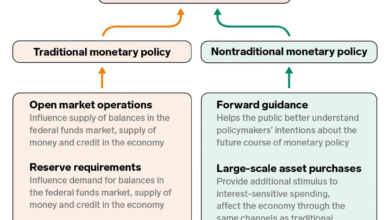AI Concentration Risk: Investor Concerns on Market Stability

As concerns about AI concentration risk grow, the stock market remains an interesting landscape for investors navigating the challenges of market concentration. The S&P 500 is showing remarkable resilience, recently hitting new all-time highs, driven largely by major players in artificial intelligence stocks. However, this bullish sentiment is accompanied by a palpable unease, as investor concerns about stock market concentration intensify amidst a backdrop of increasing volatility. With the market outlook reflecting potential corrections, understanding the implications of AI concentration risk on overall performance becomes crucial. As analysts sift through S&P 500 analysis, it becomes evident that concentrated positions could face vulnerability if major tech firms falter.
The phenomenon of market concentration, particularly in the realm of artificial intelligence, has captured the attention of many investors who are increasingly wary of their portfolios’ exposure to volatility. This situation has elevated discussions around factors contributing to stock market performance, especially as large-cap companies dominate the indices. The rising prominence of tech conglomerates poses a dual challenge, as while they drive market growth, their concentrated influence raises alarms about potential repercussions during a market correction. Investors are now compelled to consider diversification strategies in light of these trends, emphasizing the importance of balancing high-quality investments against the backdrop of today’s dynamic economic landscape.
Understanding AI Concentration Risk in the Market
As the stock market continues to thrive amidst a backdrop of economic optimism, many investors are starting to express concern over the concentration risk associated with artificial intelligence (AI) stocks. This concentration risk is evident in the S&P 500’s reliance on a handful of high-performing companies, particularly those in the technology sector. While names like Nvidia and other AI favorites have propelled the index to new heights, their dominance creates a vulnerability for the overall market. In effect, any negative developments surrounding these key players could ripple through and impact broader investor sentiment, making concentration risk a primary concern for prudent investors.
Investor apprehension grows as the S&P 500 appears increasingly top-heavy, where a small group of mega-cap companies dominate returns. This heavy weighting increases the stakes, as market corrections can disproportionately affect those invested in these leading stocks. For instance, if Nvidia’s momentum were to falter due to external factors like regulatory pressures from China, it could precipitate a broader market correction, highlighting how concentrated exposure to specific sectors, especially AI, can pose substantial risks.
Frequently Asked Questions
What is AI concentration risk in the stock market?
AI concentration risk refers to the potential negative impact on the stock market due to the over-reliance on a small number of high-performing artificial intelligence stocks. This risk is exacerbated by the significant market weight of leading companies like Nvidia within the S&P 500, raising concerns about overall market stability during downturns.
How does stock market concentration affect investor concerns?
Investor concerns are heightened by stock market concentration, particularly related to AI stocks. When a few high-value companies dominate market performance, it can create vulnerabilities. If these stocks falter, as seen with Nvidia’s high market share, it could lead to a broad market correction, prompting cautious strategies among investors.
What role do AI stocks play in S&P 500 analysis?
In S&P 500 analysis, AI stocks like Nvidia are crucial due to their remarkable growth rates and market share. Their performance can greatly influence the index’s overall trajectory. The current AI boom has propelled these stocks, leading to price-to-earnings premiums, which raises red flags about potential overvaluation and subsequent market corrections.
Why are investors concerned about artificial intelligence stocks?
Investors are concerned about artificial intelligence stocks due to their significant market concentration and high valuations. The reliance on a few tech giants to drive market growth raises the risk of a market downturn if these stocks decline in value, especially given the dangers of overvaluation highlighted in recent analyses.
What is the market correction outlook concerning AI concentration risk?
The market correction outlook regarding AI concentration risk indicates a looming risk of a significant downward trend, as emphasized by financial analysts. They suggest that the current overvaluation of AI stocks and their dominant market share may lead to a ‘violent’ correction, urging investors to diversify their portfolios to mitigate potential losses.
| Key Point | Details |
|---|---|
| Market Performance | The S&P 500 has reached all-time highs driven by AI advancements and strong corporate earnings. |
| Investor Concerns | Increased concentration risk is making investors uneasy about potential market corrections. |
| Top-Heavy Market | The top 20% of companies in the S&P 500 are trading at a 57% premium, signaling potential market vulnerability. |
| AI Concentration Impact | Companies like Nvidia have significant weight in the index, making the market sensitive to their performance. |
| Stock Rotation | Recent trends show small-cap and value stocks outperforming larger and growth stocks. |
| Market Correction Prediction | Forecasts indicate a potential market correction of 20% or more in the near future. |
| Diversification Advice | Experts recommend diversifying across sectors and regions to manage risks. |
Summary
AI concentration risk is becoming a growing concern for investors as high levels of market concentration around leading AI firms could lead to significant vulnerabilities. With the S&P 500 approaching record highs, many are wary of the implications of such a narrow market focus, primarily driven by a few tech giants. As market dynamics shift, investors are urged to consider diversification strategies to mitigate potential losses should a correction occur.




